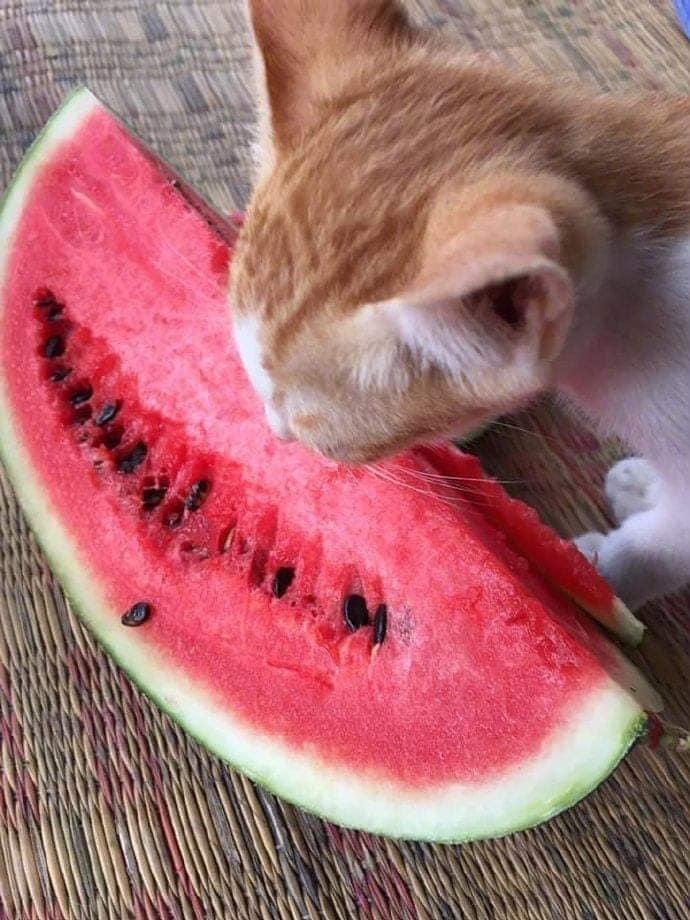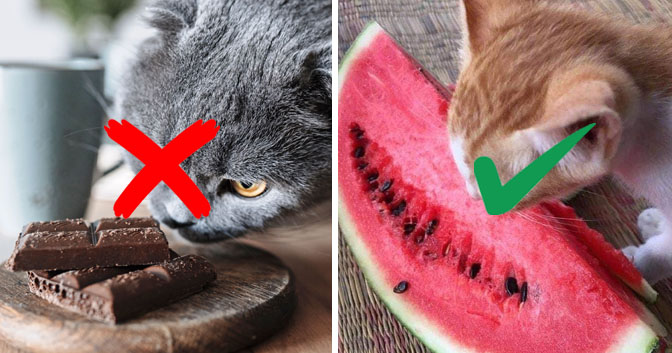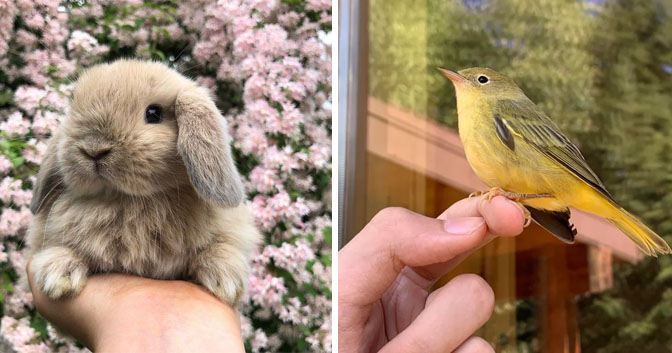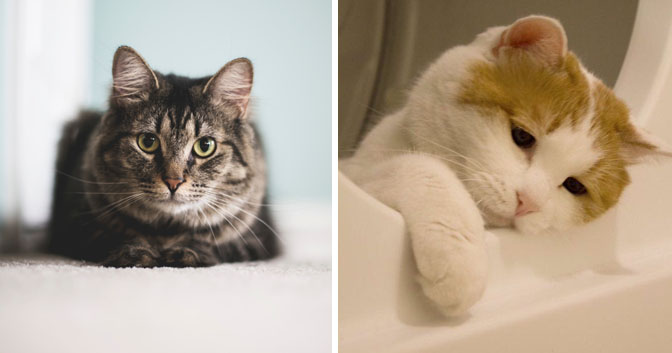Can Cats Consume some human foods? Cats can consume certain human foods, such as prepared meats and certain fruits and vegetables. Cats, on the other hand, obtain all of the nutrients they require from a comprehensive and balanced cat diet. There’s no need to supplement your cat’s diet, although there are some human foods for cats that you can offer as a treat on occasion. Remember that treats, including safe human foods, should account for no more than 10% of your cat’s daily caloric intake. The remaining 90% should come from their cat food.
What Can Cats Consume?
Cats can consume a variety of things, including cooked meats, vegetables, and fruits, with a few notable exclusions. Cats are obligate carnivores, which means they exclusively eat nutrients found in animal tissues. That doesn’t mean cats can only eat meat; it just implies meat is an essential part of their diet. When it comes to cat food, the issue becomes, “what food is good for cats?”
What Meats Can Cats Consume?
Your cat can consume cooked, lean meats such beef, chicken, turkey, liver, and lamb. Never feed raw meat to your cat since it may contain deadly bacteria. Also, before feeding your cat, remove all skin and bones.
Cats are obligate carnivores, meaning they require a meat-based diet to thrive. Lean, cooked meats like chicken, turkey, and beef are excellent options that provide essential proteins and nutrients for your feline friend. These meats should be boneless, skinless, and free from seasoning or additives. Fish like salmon or mackerel can also be included occasionally, but they should be cooked and deboned to prevent any potential risks. When offering meats to your cat, ensure they are well-cooked to eliminate harmful bacteria and provide a balanced diet that supports their overall health.
Can Cats Consume Fish?
Yes, in most circumstances. Cats are well-known for their fondness for fish, and most species are safe for them to consume. Fish contains omega-3 fatty acids, which are beneficial to your cat’s overall health as well as joint and renal function. Cook the fish properly, as you would meat, and remove all bones.
Can Cats Consume Whole Grains?
Whole grains, such as oats and brown rice, are high in protein and can be fed to your cat in moderation. Keep in mind that some of these elements are likely already in their cat food. While cats are primarily carnivores, small amounts of cooked whole grains like rice or quinoa can be included in their diet for added fiber and energy.
These grains should make up a very small portion of their meal, usually no more than 10% of the total diet. Whole grains can offer some nutritional benefits and help with digestion, but they should not replace the essential protein that cats need from meat sources. Always consult with a veterinarian to ensure that any additions to your cat’s diet, including whole grains, are appropriate and balanced for their individual nutritional needs.
Can Cats Consume Eggs?
Yes. You might be surprised to find that eggs are permitted as long as they are prepared (scrambled or boiled). Eggs are high in amino acids and protein, making them a nutritious snack. However, never feed uncooked eggs to your cat. Raw eggs, like raw meat, might potentially give your cat salmonella.
Can Cats Consume Vegetables?
When it comes to human food for cats, there are certain veggies that cats can safely consume, but others that they should avoid. Here is a list of veggies that cats may and cannot consume.
Carrots
Carrots can be beneficial to cats as an occasional treat. On the other hand, are high in sugar, which can induce gastric distress. As a result, limit this treat to a minimum.
Broccoli
Feeding your cat a small amount of broccoli is an excellent method to provide roughage and encourage good digestion. Feeding your cat broccoli may diminish their interest in munching on various houseplants in some situations. If you feed broccoli to your cat, consider steaming it to make it gentler on their palate.
Beans, Green
Yes, but while green beans are beneficial to your cat’s digestion, make sure you only serve them fresh or frozen. Canned green beans can be heavy in salt, which might be harmful to your cat’s health.
Asparagus
They can, however be aware that the high alkaline level in potassium can create urinary system obstructions, so only feed your cat asparagus on exceptional occasions. Also, remember to steam it first to soften it, since it could otherwise constitute a choking hazard.
Corn
Corn’s high fiber content makes it a fantastic addition to your cat’s diet, but it’s likely that it’s already in the food you’re giving your cat on a daily basis.
Vegetables That Are Harmful to Cats
Chives and onions
No. These three are all from the Allium family and contain thiosulphate, which can damage your cat’s kidneys and red blood cells.
Avocados
Avocado should not be eaten by cats. Even modest amounts of avocado can induce diarrhea, vomiting, and even pancreatitis in your cat. This is related to persin, a toxin found in avocados.
Tomatoes
Tomatoes are to be avoided. Though the fleshy section of mature tomatoes is not dangerous to cats, the leaves and stems are, and tomatoes that have not fully ripened might induce gastrointestinal irritation.
If your cat consumes any of these vegetables, contact your veterinarian right once.
Can Cats Consume Fruit?
Yes, you can give your cat a variety of fruits in moderation. Cats, as obligate carnivores, lack the ability to sense the sweetness of fruits, so they may not be drawn to them in the same way that other forms of food are. Regardless, cats can eat a variety of fruits, but there are a few you should avoid.
What Fruits Can Cats Consume?
Blueberries
If your cat decides to sample blueberries, that’s fine, but keep in mind that blueberries are heavy in sugar, therefore no more than two to three should be fed to your cat.
Banana
Cats can like bananas as a treat. Serve in little slices to avoid overfeeding and giving your cat too much sugar.
Apples
Cats can eat apples, but they should be served in bite-sized chunks to avoid choking.

Watermelon
Cats can eat watermelon, but due of the high sugar content, they should only eat a limited amount. Also, because seeds might be a choking hazard, only serve seedless watermelon to your children.
Cantaloupe
It’s fine to give your cat some cantaloupe. Some cats enjoy cantaloupe, and many are lured to it by its aroma.
Strawberries
Yes. If your cat is interested in strawberries, give them a small slice. Always remove the stem and leaves from your pieces and keep them small.
What Fruits Are Harmful to Cats?
Feed your pet no grapes or raisins. Although the reason of grapes’ negative effects is uncertain, they can be detrimental to both dogs and cats. Grapes and raisins can induce vomiting, diarrhea, and even kidney failure in your cat.
Certain fruits can be harmful to cats and should be avoided to ensure their well-being. Grapes and raisins, for example, can lead to kidney failure, while citrus fruits like oranges and lemons contain compounds that are toxic to cats. Additionally, cherries and peaches contain pits that can pose choking hazards. It’s important to prioritize your cat’s health by steering clear of these fruits and sticking to safe and appropriate foods for their diet. If you’re unsure about the suitability of any fruit for your cat, consult with a veterinarian for guidance.
Human Foods Not to Feed Your Cat
Many human foods are safe for cats to consume, but there are many that are not. The following foods/ingredients are poisonous or dangerous to cats:
- Dark chocolate is especially dangerous.
- Nuts, especially macadamia and walnuts
- Coffee, tea, or anything containing caffeine
- Allium-containing foods include: shallots, leeks, and scallions
- Seeds
- Raw fish and beef
In conclusion, understanding the human foods that are potentially harmful to cats is essential for their well-being. While sharing a treat with your feline friend might be tempting, it’s crucial to prioritize their health and safety.
By avoiding foods like chocolate, onions, garlic, grapes, and certain dairy products, you’re taking an important step in ensuring that your beloved cat remains healthy and happy. Remember, consulting with a veterinarian for any uncertainties or concerns is always a wise choice when it comes to your cat’s diet.





